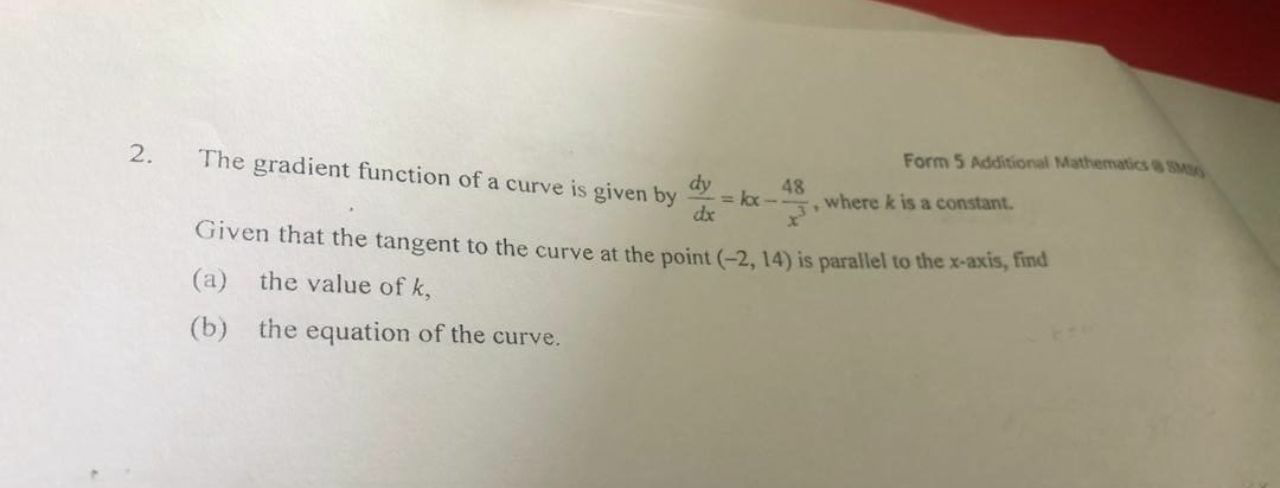Question Number 88731 by I want to learn more last updated on 12/Apr/20

Commented by john santu last updated on 12/Apr/20
![2a) (dy/dx) = kx−48x^(−3) ]_((−2,14)) = 0 ⇒−2k −((48)/8) = 0 ⇒k = −3 2b) f(x) = ∫ (−3x−48x^(−3) ) dx f(x) = −((3x^2 )/2) + ((24)/x^2 ) + c ⇒ 14 = −6 + 6 +c ⇒ c = 14 f(x) = −((3x^2 )/2)+((24)/x^2 ) + 14](https://www.tinkutara.com/question/Q88734.png)
$$\left.\mathrm{2}\left.{a}\right)\:\frac{{dy}}{{dx}}\:=\:{kx}−\mathrm{48}{x}^{−\mathrm{3}} \:\right]_{\left(−\mathrm{2},\mathrm{14}\right)} \:=\:\mathrm{0} \\ $$$$\Rightarrow−\mathrm{2}{k}\:−\frac{\mathrm{48}}{\mathrm{8}}\:=\:\mathrm{0}\:\Rightarrow{k}\:=\:−\mathrm{3} \\ $$$$\left.\mathrm{2}{b}\right)\:{f}\left({x}\right)\:=\:\int\:\left(−\mathrm{3}{x}−\mathrm{48}{x}^{−\mathrm{3}} \right)\:{dx} \\ $$$${f}\left({x}\right)\:=\:−\frac{\mathrm{3}{x}^{\mathrm{2}} }{\mathrm{2}}\:+\:\frac{\mathrm{24}}{{x}^{\mathrm{2}} }\:+\:{c} \\ $$$$\Rightarrow\:\mathrm{14}\:=\:−\mathrm{6}\:+\:\mathrm{6}\:+{c}\:\:\Rightarrow\:{c}\:=\:\mathrm{14} \\ $$$${f}\left({x}\right)\:=\:−\frac{\mathrm{3}{x}^{\mathrm{2}} }{\mathrm{2}}+\frac{\mathrm{24}}{{x}^{\mathrm{2}} }\:+\:\mathrm{14} \\ $$
Commented by I want to learn more last updated on 12/Apr/20

$$\mathrm{Thanks}\:\mathrm{sir}. \\ $$
Commented by john santu last updated on 12/Apr/20

$${ok}\:{sir} \\ $$
